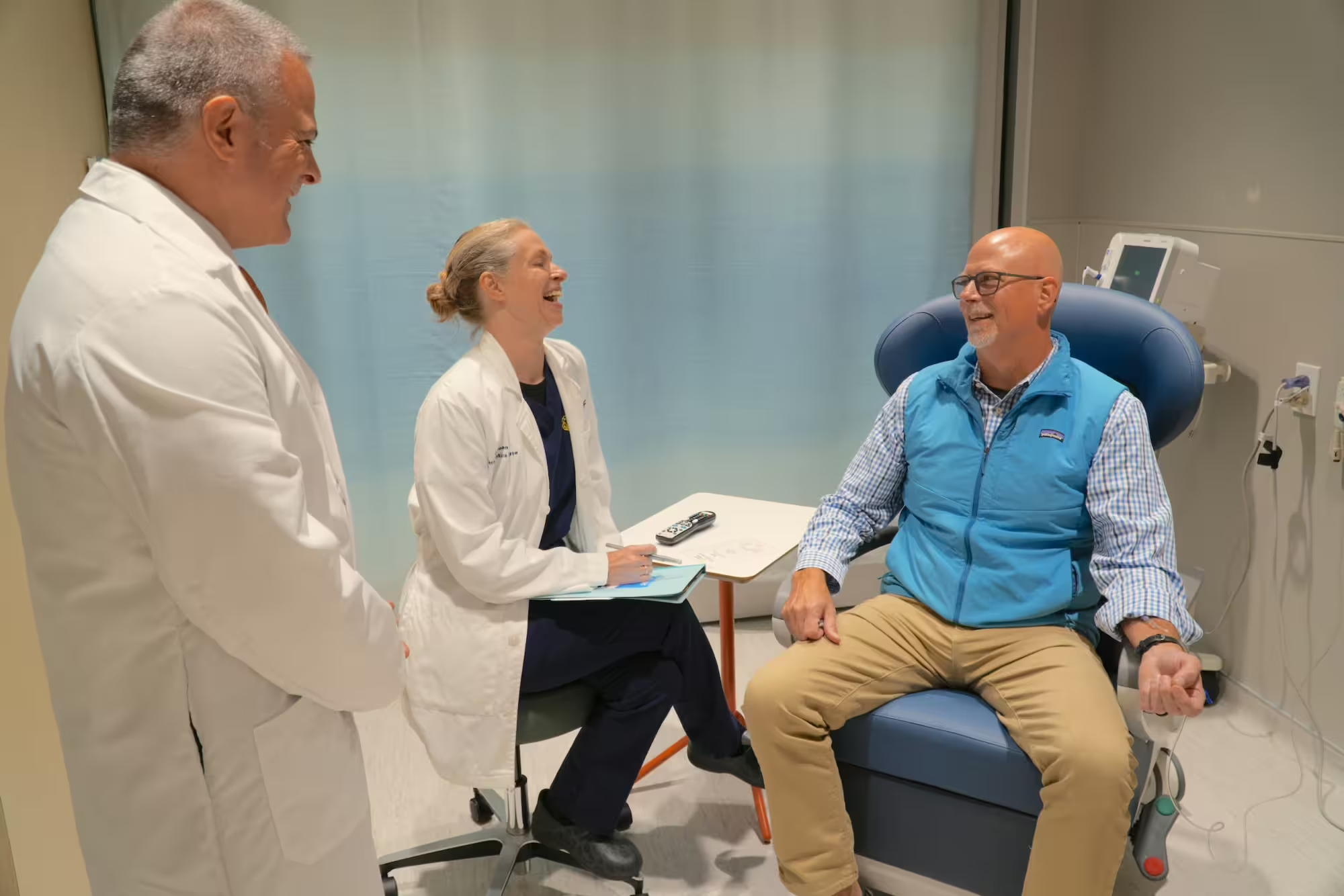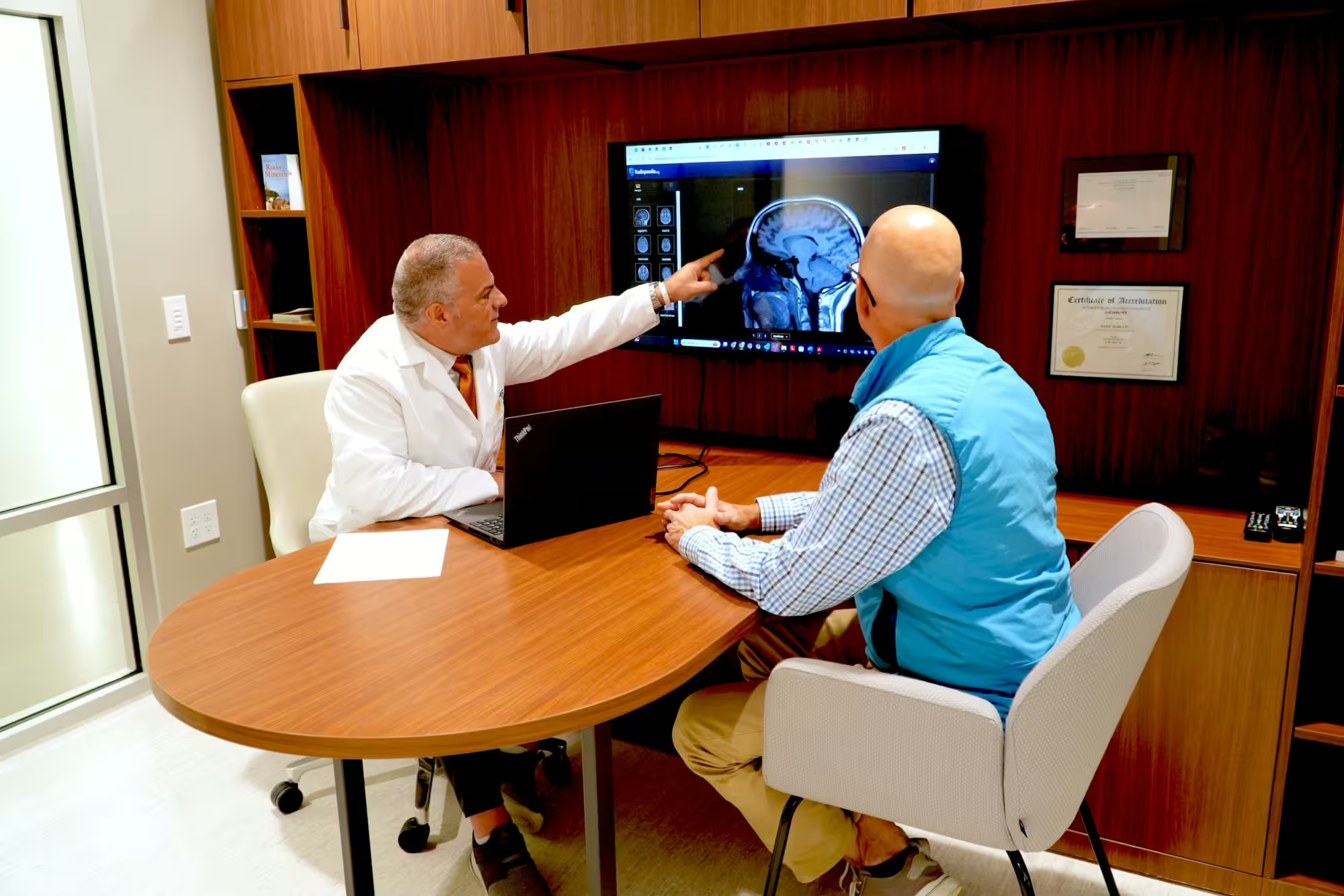
Join our Consultation Waitlist
If you or a loved one want to explore treatment for mild Alzheimer’s Disease, join our consultation waitlist.
During a consultation, a physician will review your health history, discuss your symptoms, and conduct evaluations to assess potential mild cognitive impairment.
Please note that imaging and therapy options are only available for patients with mild symptoms, at this time. Contact your primary care provider if you feel symptoms have progressed beyond this.
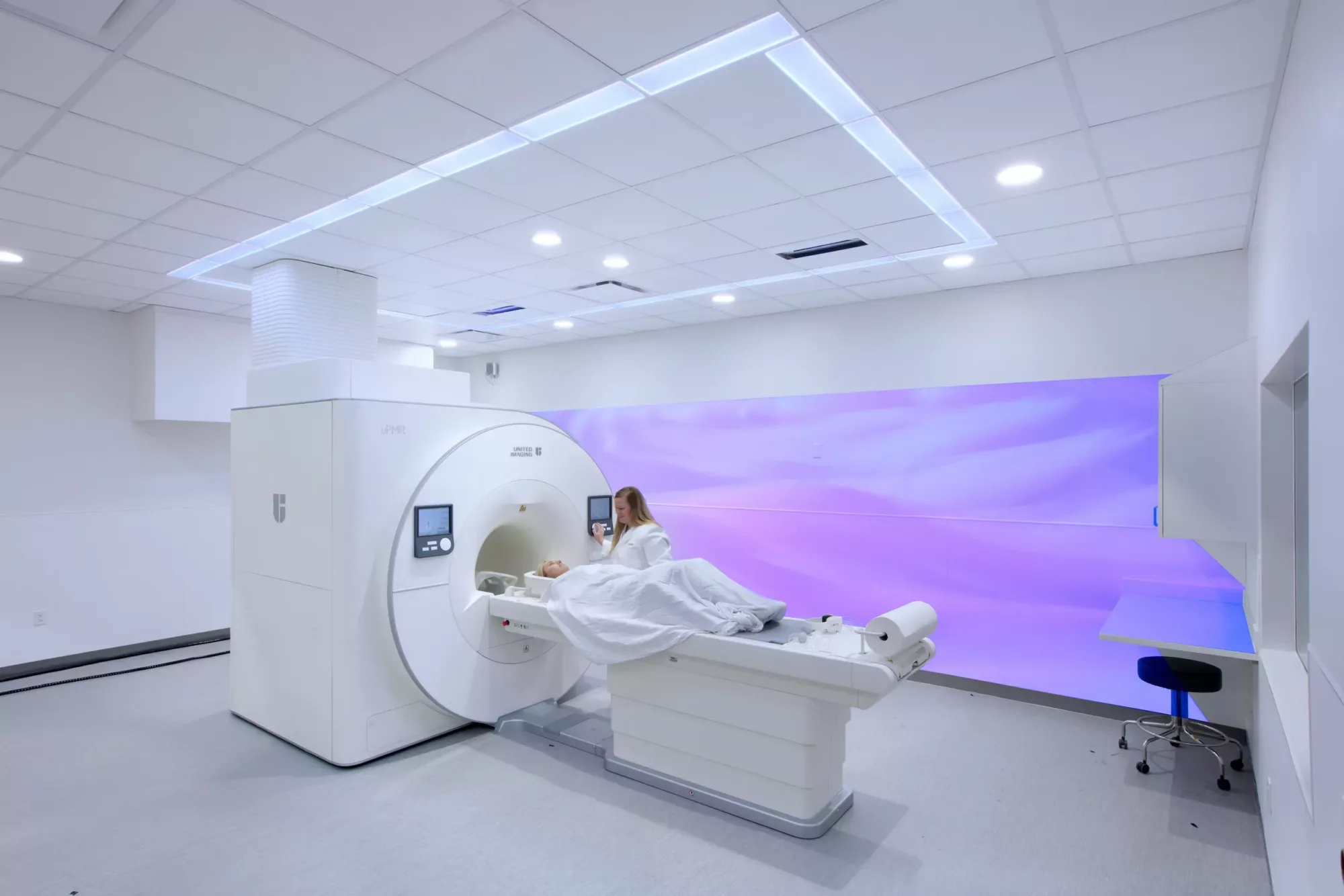
Alzheimer's Disease Amyloid Imaging
It’s time to stop Alzheimer’s disease in its tracks. Using the world’s most advanced imaging technology, we measure precise amounts of disease-causing plaque buildup in the brain, leading to a more accurate diagnosis.
We are the only site in the state of Michigan with a PET/MR scanner and the ability to perform a brain MRI and amyloid PET scan in the same visit.
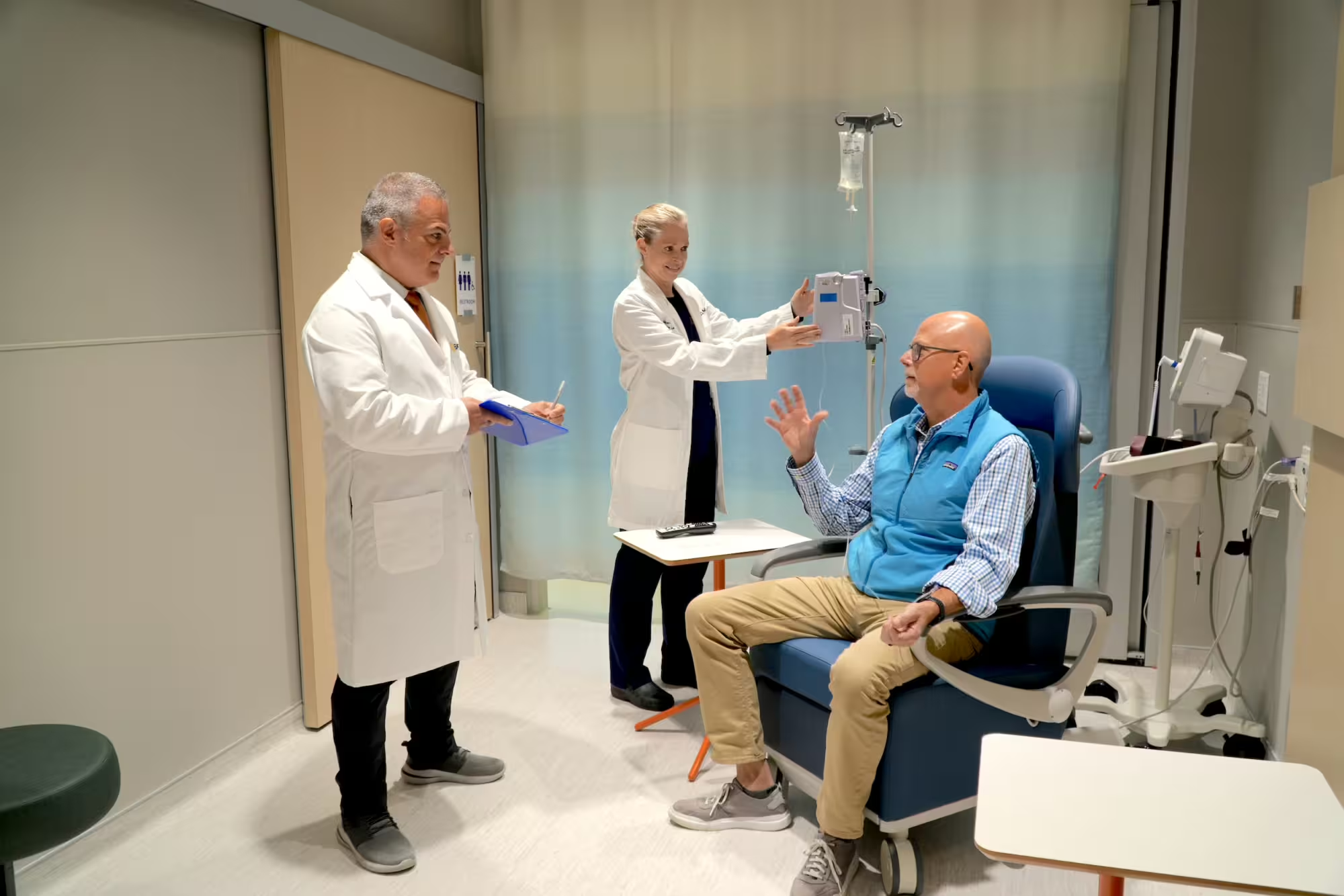
Alzheimer's Disease Treatment
Patients can receive FDA-approved treatment for Alzheimer’s disease at BAMF Health’s therapy clinic. Treatment is approved for those diagnosed with mild cognitive impairment due to Alzheimer’s Disease.
For Referring Providers
We are a one-stop shop for Alzheimer’s Disease imaging and treatment. Providers interested in ordering imaging or infusion services, or referring a patient for an MCI or Alzheimer’s evaluation, can do so using the listed forms.
Evaluation Referrals, Imaging and Therapy Orders
- PET/CT form
- PET/MR form
- Monoclonal antibody order form LQ
- Monoclonal antibody order form KS
- Evaluation referral
For more details about ordering imaging, view our image ordering guide.
Frequently Asked Questions about Alzheimer's Disease
What is Alzheimer’s Disease?
Alzheimer’s Disease is a progressive brain disorder that damages nerve cells, leading to problems with memory, thinking, and behavior. It is the most common form of dementia, characterized by a decline in cognitive abilities that affects daily life.
What are the early warning signs?
While everyone occasionally forgets things, several persistent symptoms may indicate Alzheimer’s Disease:
- Noticeable difficulty remembering recently learned information
- Repetitive questioning and conversations
- Trouble keeping track of important dates or appointments
- Difficulty following or joining conversations
- Becoming disoriented in familiar environments
- Frequently misplacing items and inability to retrace steps to find them
- Increasing problems with planning or solving everyday challenges
- Notable changes in personality or mood
How is Alzheimer’s Disease diagnosed?
Doctors use a comprehensive approach to diagnose Alzheimer’s Disease that includes:
- A detailed medical history review, including family history of dementia
- Thorough cognitive and neurological examinations
- Conversations with both patients and caregivers about symptoms and daily impact
- Advanced diagnostic methods using biomarkers found in blood and imaging including MRIs and PET scans (for people already showing cognitive impairment)
What factors increase the risk of developing Alzheimer’s?
Several factors can influence your risk of developing Alzheimer’s Disease:
Age: Risk increases significantly as you get older
Family history: Having close relatives with the disease may increase your risk
Genetic factors: Certain genes, particularly APOE4, are associated with higher risk, your status can be determined via a blood test.
Lifestyle: Unhealthy lifestyle factors, such as physical inactivity, poor diet, smoking, excessive alcohol consumption, and social isolation can significantly contribute to the risk of Alzheimer’s by influencing vascular health, brain resilience, and overall cognitive decline
What is BAMF Health doing as it relates to Alzheimer’s Disease?
BAMF Health’s Alzheimer’s Disease program is currently assessing and treating patients with mild cognitive impairment and early Alzheimer’s Disease who may be candidates for the new FDA-approved monoclonal antibody therapies, aimed to slow disease progression.
We employ a Theranostics-based approach, combining advanced diagnostic imaging with targeted therapeutic interventions. Using state-of-the-art PET/MR technology, the program accurately measures amyloid plaque accumulation in the brain, facilitating precise diagnoses. This integrated strategy enhances early detection and personalized treatment, improving patient outcomes.
What are monoclonal antibody treatments?
While there isn’t currently a cure for Alzheimer’s, there are FDA-approved treatments aimed at slowing disease progression.
Monoclonal antibodies are a new type of medication for Alzheimer’s Disease. They are given by intravenous infusion, usually once every two weeks or once a month. Monoclonal antibodies target a protein called amyloid beta, which builds up in the brain and is thought to contribute to Alzheimer’s. These medications can help to slow the progression of Alzheimer’s, but they cannot cure it. Monoclonal antibodies are approved only for people with mild cognitive impairment (MCI) due to Alzheimer’s Disease or mild Alzheimer’s dementia.
It is important to be aware that monoclonal antibodies can cause side effects. The most common side effect is amyloid-related imaging abnormalities (ARIA). ARIA can cause swelling or bleeding in the brain. Most people with ARIA do not have symptoms, but some people may experience headache, confusion, dizziness, or vision changes. Another possible side effect is an infusion reaction, which is like an allergic reaction. Infusion reactions are usually mild, but they can sometimes be serious.
Learn More About Alzheimer's Disease

Infused with Possibility: Alzheimer’s Patient Shares Treatment Experience
BAMF Alzheimer’s patient says he feels privileged to come here and adds, “Now I have a shot.”
February 4, 2025
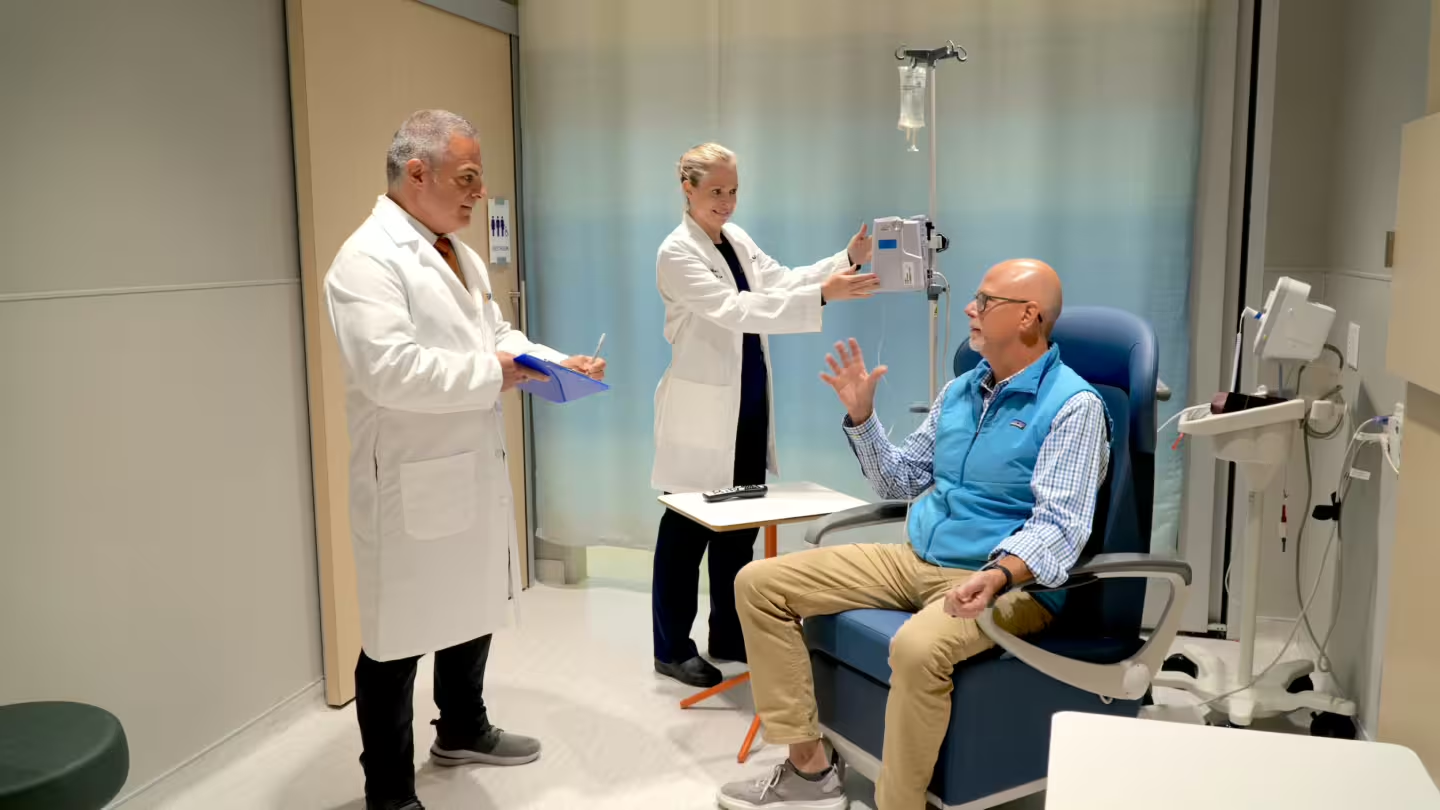
How to Spot the Early Signs of Alzheimer’s Disease
FDA-approved treatment is available to those with Alzheimer’s Disease, but only in its earliest stage. We walk through the early signs to look for.
January 9, 2025
